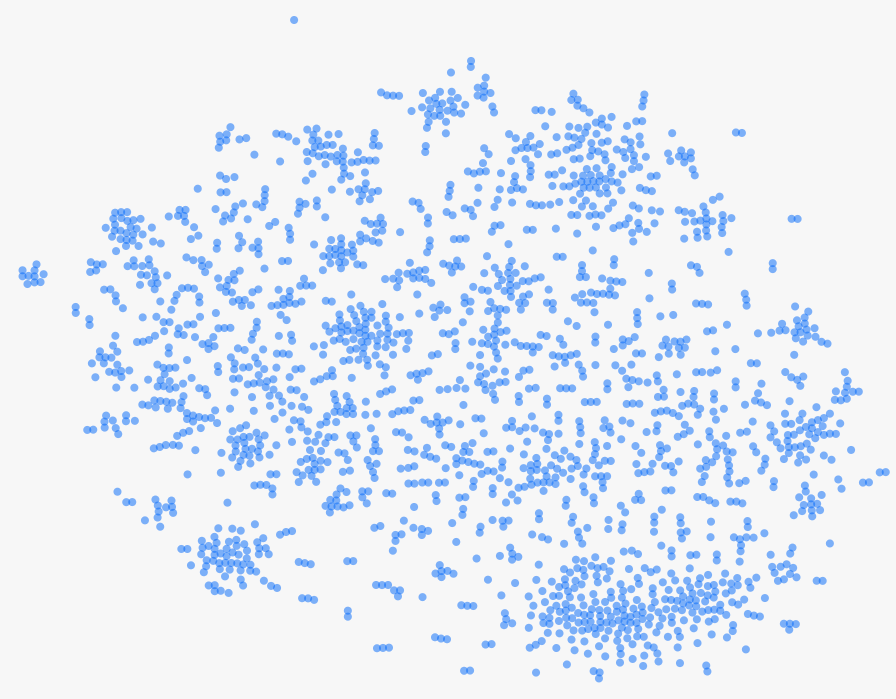The Neural Information Processing Conference (NeurIPS), generally regarded as the world’s leading conference for Artificial Intelligence researchers, went virtual this year and the pace of research activity did not miss a beat.
The most notable NeurIPS trend emerging from the conference is the sheer volume of papers (9467) submitted for consideration, resulting in 1900 accepted for a ~20% paper acceptance rate. This is a 40% increase over the number of papers submitted in 2019 and, from our perspective, highlights both the speed of innovation happening in the field, and the breadth of topics being explored by a research community that is now represented by approximately 900 organizations.
For a detailed analysis of paper trends, this blogpost by research scientist Sergei Ivanov provides a breakdown by research organization and fields of research. Not surprisingly, the organizations with the most papers continue to be the top computer science departments in North America, Europe, and Asia, along with the large technology companies. The collaboration between these organizations is often less visible, but it highlights the global nature of these networks of researchers who often self organize around specific sub-topics of research. MIT researchers, for example, collaborated with 21 other organizations on at least two papers. They co-authored 18 papers with researchers at Google, eight with Microsoft, and seven with Stanford University.
This year the NeurIPS Best Paper Awards featured the much hyped paper on GPT-3 by Open AI researchers that “shows that when such language models are scaled up to an unprecedented number of parameters, the language model itself can be used as a few-shot learner that achieves very competitive performance on many of these problems without any additional training”.
The conference also added an ethics panel, and a request that paper submissions include a “broader impact statement” that looks at long-term implications of a paper. This is an effort for the research community to consider the impact of their research outside of academia. We recommend watching the Keynote by Prof. Charles Isbell, Dean of the Georgia Institute of Technology College of Computing. In his opening address, Prof. Isbell covers important topics in AI research such as bias and fairness, and why it is important to solve these problems and understand the repercussions they are having in real world applications.
Much like the rest of the world, academic conferences for the various sub fields of machine learning were forced to go virtual this year, a change that made these conferences more accessible to the global machine learning research community.
For some, going virtual meant missing out on what tends to be the highlight event of the year, with overflowing conference rooms for high-profile keynotes, topic specific workshops, networking, and a long list of unofficial events sponsored by large technology companies aiming to capture mindshare from the fields’s brightest researchers.
For researchers who in the past have not been able to afford the travel or secure visas, the virtual setting was a welcome development. We hope the better access afforded by a virtual NeurIPS is a feature that endures at future conferences.
AI News This Week
-
2020 Global Cities Index: New priorities for a new world order (Kearney)
The 2020 Global Cities Report provides a snapshot of where cities stood as they entered the COVID-19 crisis. While London maintained its top ranking in 2020, most cities rose or fell fairly dramatically in the Global Cities Outlook’s rankings. One example is Toronto, which climbed nine spots to take second place globally, largely as a result of its focus on innovation. For many of the rising cities, long-term investments in governance and economics have begun to pay off.
-
Xanadu’s PennyLane brings Quantum Machine Learning to Customers with Amazon Braket (Xanadu)
Pennylane, Xanadu’s open-source software for quantum computing is now integrated with Amazon Braket, a fully managed quantum computing service from Amazon Web Services (AWS). This allows data scientists and machine learning researchers on AWS to experiment with quantum computing and to better understand how this technology can be applied into existing workflows. Xanadu is a Radical Ventures portfolio company.
-
Artificial Intelligence Is Now Shockingly Good at Sounding Human (Scientific American)
Synthetic voices offer directions on our commute, shepherd us through phone calls by day, and broadcast the news on smart speakers at night. And as this technology improves, these voices are becoming more and more human-sounding. This is the final frontier in synthetic speech: replicating not just what we say, but how we say it.
-
Banks and fintechs talks partnerships in an increasingly digital world (FinLedger)
Traditional banks are doubling down on technology and partnering with fintechs to meet the rapid and increased demand for digital offerings by consumers. An example of this rapid transformation is Progress Bank launching Sensibill’s digital receipt management solution to increase efficiency and improve its customers’ digital experience. Sensibill is a Radical Ventures portfolio company.
-
OceanIA treats climate change like a machine learning grand challenge (VentureBeat)
A team of researchers with the recently established OcéanIA is treating the study of the ocean and climate change as a machine learning grand challenge. The four-year project brings together more than a dozen AI researchers and scientists shared initial plans this week. As one of the researchers put it: “the role of oceans in climate change is not only important but also a challenge for modern AI and applied ML.”
Radical Reads is edited by Ebin Tomy.

